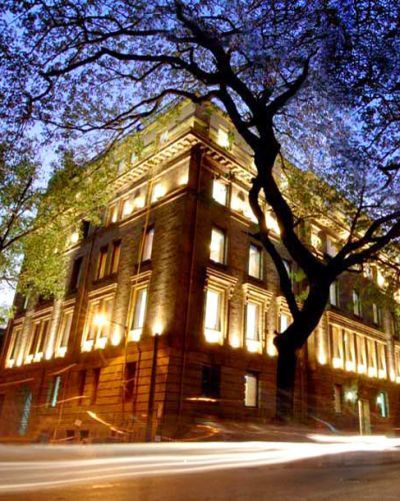Tata Motors, Titan Company & Tata Steel come in at second, third & fourth slots.
 India's largest software services company Tata Consultancy Services (TCS) accounts for over two-thirds of the combined market value of all Tata group companies.
India's largest software services company Tata Consultancy Services (TCS) accounts for over two-thirds of the combined market value of all Tata group companies.
The IT major accounted for a third of the group's total market value in early 2008 and was less than half at the time of its initial public offer in August 2004.
The company was valued at a little over Rs 5 lakh crore at the end of August 2015, against the Tata group companies' combined market capitalisation of Rs 7.41 lakh crore.
Tata Motors is the second most valuable company in the group followed by Titan Company and Tata Steel. In all, the top five companies account for 92 per cent of the group's market value (See chart).

Nineteenth century Italian economist Vilfredo Pareto suggested a principle which says that roughly 80 per cent of the effects come from 20 per cent of the causes.
Also known as Pareto Principle, it translates into investment and business to mean the bulk of profits or income come from a handful of investments. This rule is playing out strongly at India's largest business house.
The Tata group is now increasingly dependent on TCS to drive its market value and group profitability, despite its smaller contribution to the group's revenues and balance sheet.
The group finances also owe a great deal to TCS' financial performance. In 2014-15, TCS accounted for 63 per cent of the group's combined net profit and 87.5 per cent of all dividends paid out by the group.
The analysis is based on the month-end market capitalisation of the Tata group's listed companies and their annual finances since 2004-05, the year when TCS' financial statements were first made available.

The sample excludes listed subsidiaries of key group companies such as Tata Coffee, Rallis India, Benares Hotels and CMC.
As TCS is the single biggest investment by Tata Sons in terms of equity holding, the dividend from the company is a key driver for the holding company's finances.
A steady cash inflow from TCS has allowed Tata Sons to support the growth of other group companies and seed new businesses such as airlines despite a poor showing by bigger companies in the group such as Tata Motors, Tata Steel and Tata Power.
TCS accounted for 15.6 per cent of 2014-15 group revenues and came third after Tata Motors and Tata Steel. In terms of assets and capital employed it came in after Tata Motors, Tata Steel and Tata Power.
Experts say the group's bigger companies such as Tata Motors, Tata Steel and Tata Power are capital intensive and have struggled to grow profitably in the last few years due to a downturn in the global economy since 2008.
"The Tata group's steel, automobile and chemical businesses were hit by the 2008 global financial slowdown. Now the Chinese slowdown is hitting them. Their domestic businesses are taking a hit from the slowdown in the home market. Things will change only when the global growth cycle, including India's, is back on track," says G Chokkalingam, founder and chief executive officer, Equinomics Research & Advisory.
For others, a good showing by TCS is a feather in the cap for the Tata group. "It just shows that the group is only partially exposed to manufacturing and commodities, unlike many other business groups.
TCS accounts for two-thirds of Tata group's market value This cushions the blow from an economic downturn and provides it with financial muscle to maintain investment despite a tough operating environment," says Sivarama Krishnan, partner and head, risk management, PwC India.
As TCS earns most of its revenues from the US and Western Europe, it also de-risks Tata Sons from its home market in India.
"We can always point fingers at the poor showing by a few of the group companies; but from a portfolio point of view, the group is well balanced and set for the long haul," adds Krishnan.












 © 2025
© 2025